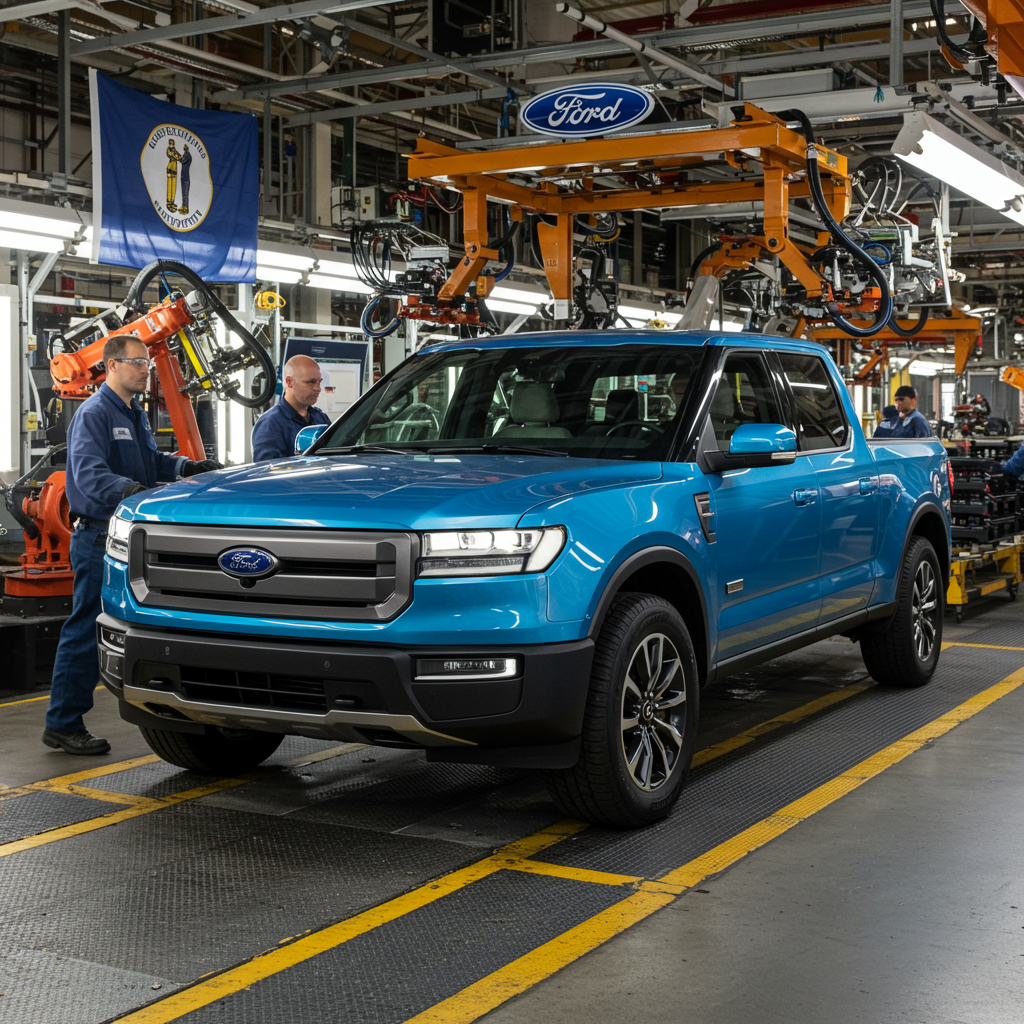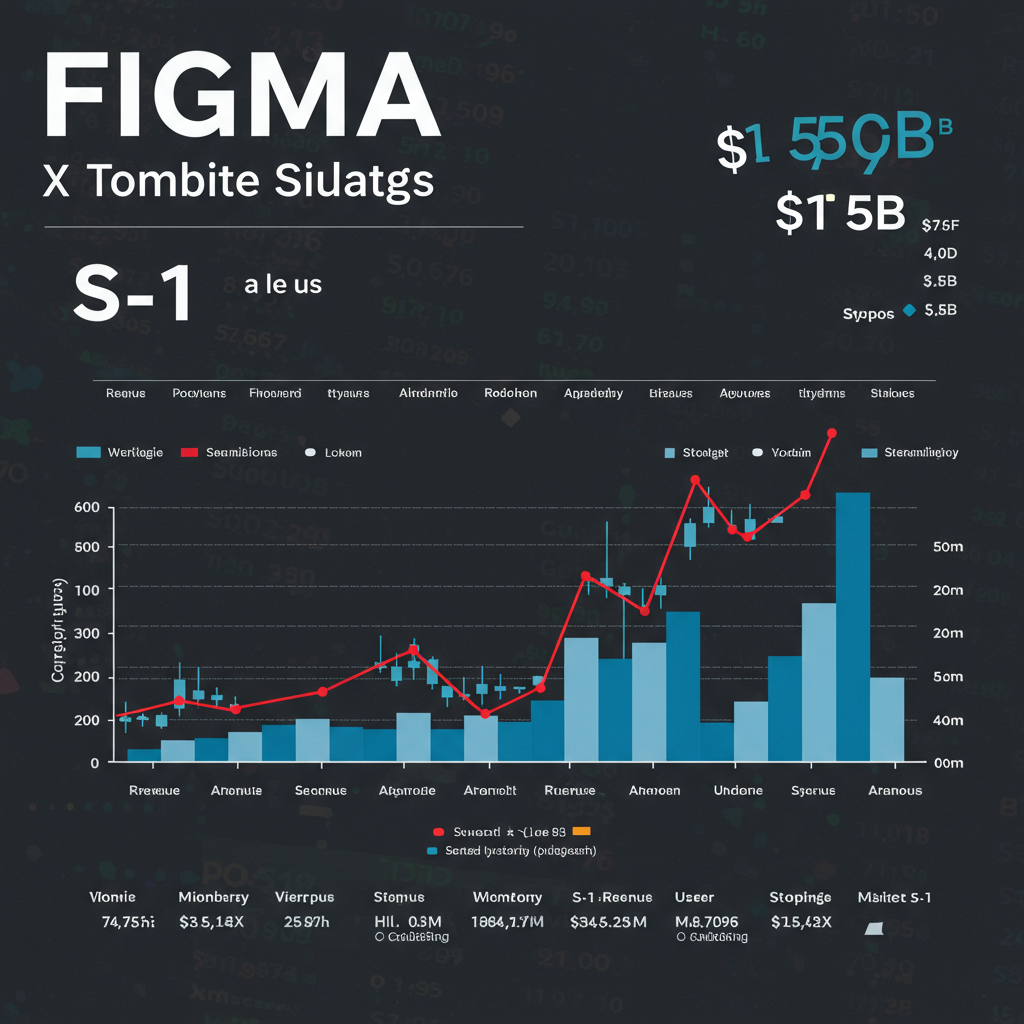Ford Motor Company is embarking on a profound transformation of its electric vehicle strategy, spearheaded by a significant $2 billion investment in its Louisville, Kentucky, assembly plant. This strategic move is not just about expanding production; it’s a calculated effort to redefine affordability and profitability in the competitive EV market, directly challenging global rivals with American-made vehicles. The centerpiece of this initiative is a revolutionary production system aimed at rolling out an innovative, affordable midsize electric pickup truck by 2027.
The “Model T Moment” for Electric Vehicles
Ford CEO Jim Farley has characterized this sweeping change as a “Model T moment” for the company’s EV business. This powerful analogy draws a direct parallel to Henry Ford’s groundbreaking innovations in mass production over a century ago, signaling a similarly radical overhaul in how Ford designs and builds its vehicles. The objective is clear: to create electric vehicles that are not only affordable for customers but also highly profitable for the automaker, delighting buyers with superior design, innovation, flexibility, space, driving pleasure, and a lower cost of ownership. This ambitious vision aims to transform Ford’s electric vehicle segment, which reported a substantial $5.08 billion loss in 2024, into a sustainable, money-making venture.
Revolutionizing Production: The Universal EV Platform & System
At the core of Ford’s ambitious plan are two interconnected innovations: the Ford Universal EV Platform and the Ford Universal EV Production System. Developed by a nimble “skunkworks” team, the Universal EV Platform is a simplified, cost-effective design adaptable for a wide range of future electric models. This software-defined platform allows for over-the-air updates, ensuring future adaptability. Key efficiency gains include a remarkable 20% reduction in parts, 25% fewer fasteners, and a massive 40% reduction in workstations compared to a typical vehicle platform. The wiring harness alone for the new midsize truck will be over 4,000 feet shorter and 10 kilograms lighter than that found in Ford’s current first-generation electric SUV.
Complementing this platform is the Ford Universal EV Production System, dubbed the “assembly tree.” This system dramatically departs from the traditional linear assembly line. Instead, it utilizes three sub-assembly lines that operate simultaneously before converging at the final stage. This innovative approach incorporates large, single-piece aluminum unicastings, allowing the front and rear of the vehicle to be assembled independently. The structural battery pack, which serves as the vehicle’s floor, is also independently assembled with interior components like seats and carpeting before combining with the front and rear sections. This streamlined process aims for a 15% faster assembly time and significantly improves ergonomics for workers by reducing strenuous movements, ultimately enhancing quality and efficiency.
The Future is Affordable: A Mid-Size Electric Pickup
The first vehicle to emerge from this revolutionary production system will be a midsize, four-door electric pickup truck. Slated for a 2027 launch, this highly anticipated truck targets an incredibly competitive starting price of approximately $30,000. This pricing positions it to address a “horribly underserved” market segment, offering a compelling alternative to higher-priced competitors like Tesla’s cheapest model (starting around $42,490).
Despite its accessible price point, the new electric pickup promises impressive capabilities and features. It is expected to offer performance comparable to a Mustang EcoBoost (targeting 0-60 mph in 4.5 seconds) and provide more passenger space than a Toyota RAV4. Practical elements like a frunk (front trunk) and a traditional truck bed will enhance its utility. Ford also projects a lower five-year cost of ownership compared to a three-year-old used Tesla Model Y, underscoring its commitment to delivering long-term value to customers.
Powering the Future: LFP Batteries and a Robust Supply Chain
A cornerstone of Ford’s affordability strategy is its commitment to lower-cost batteries. The new electric pickup will feature lithium iron phosphate (LFP) batteries, which are inherently less expensive due to the absence of cobalt or nickel. These batteries are also recognized for their safety, durability, and longer lifespan. Ford plans to assemble these prismatic LFP batteries at its previously announced $3 billion BlueOval Battery Park in Marshall, Michigan, which is set to begin production next year. While Ford is licensing this battery technology from Chinese battery maker Contemporary Amperex Technology Co. Ltd. (CATL), the assembly and integration will be performed domestically.
This dual investment in Louisville and Michigan, totaling nearly $5 billion, aims to significantly strengthen the domestic EV supply chain by fostering new U.S.-based suppliers. The new EV platform also boasts impressive battery efficiency, enabling the same range as current-generation EVs with a third fewer battery cells. Furthermore, the vehicles will offer bidirectional charging capabilities, potentially powering a house for up to six days during an outage, adding significant value and utility.
Economic Impact and Job Evolution in Kentucky
The $2 billion investment in the Louisville Assembly Plant carries a substantial economic impact for Kentucky. It is projected to secure approximately 2,200 hourly jobs at the plant. Kentucky Governor Andy Beshear hailed the announcement as one of the largest investments in the state’s history, solidifying Kentucky’s position as a leader in EV-related innovation and reinforcing its long-standing partnership with Ford. While the retooling for EV production means the plant will employ about 600 fewer workers than its previous configuration of over 3,000 employees, Ford has committed to offering buyouts or transfers to nearby plants, with no layoffs planned. This transition also signifies the end of Ford Escape and Lincoln Corsair production at the Louisville plant by the end of the year, making it Ford’s most automated plant globally with expanded facilities and upgraded digital infrastructure for quality control. Ford also stated that its combined investment across the Kentucky assembly plant and the Michigan battery plant is projected to create or secure nearly 4,000 direct jobs across both states.
Navigating the Competitive Landscape
Ford’s bold EV strategy unfolds against a backdrop of intense global competition and shifting market dynamics. CEO Jim Farley candidly acknowledges the fierce rivalry from Chinese manufacturers like BYD, emerging global startups, and major technology companies entering the automotive space. He emphasizes that Ford’s “radical approach” is essential to compete effectively and establish “a sustainable electric business that’s profitable, that customers love.”
Despite challenges such as President Donald Trump’s administration unwinding EV incentives, including the imminent removal of a $7,500 buyer credit, Ford remains resolute in its commitment to electrification. The company’s focus is not merely on building the most electric cars but on delivering a superior, American-made EV product that outcompetes international offerings. While Ford’s Model e electric vehicle business experienced losses in recent years, the company’s overall second-quarter revenue saw a 5% increase year-over-year, demonstrating its underlying strength and capacity for strategic pivots.
Broader EV Strategy and Outlook
This significant investment in Louisville is part of Ford’s broader, evolving EV strategy. While the focus remains on the affordable midsize electric pickup, Ford has also confirmed delays for other upcoming electric vehicles, including the full-size electric pickup (a successor to the F-150 Lightning) and the E-transit van, both now slated for 2028. The current F-150 Lightning will continue production, and Ford has no plans to move Mach-E production from Mexico to the U.S. to mitigate tariff impacts. This phased approach allows Ford to concentrate resources on launching its game-changing affordable EV and ensure its profitability within 12 months of launch.
Frequently Asked Questions
What is Ford’s “Universal EV Platform” and how does it reduce costs?
Ford’s Universal EV Platform is a streamlined, software-defined design developed by a specialized “skunkworks” team. It radically reduces manufacturing complexity and costs by featuring 20% fewer parts, 25% fewer fasteners, and requiring 40% fewer workstations compared to traditional vehicle platforms. This efficiency, combined with innovations like significantly shorter and lighter wiring harnesses and the use of large, single-piece aluminum unicastings, allows for faster assembly times and a more cost-effective production process, making affordable EVs a reality.
Where will Ford’s new affordable electric pickup be produced and when is its launch?
Ford’s new midsize, four-door electric pickup truck will be produced at the retooled Louisville Assembly Plant in Kentucky, following a substantial $2 billion investment. This facility, which is becoming Ford’s most automated plant globally, is undergoing a significant transformation. The much-anticipated launch of this affordable electric pickup truck is scheduled for 2027, with a target starting price of approximately $30,000.
What makes Ford’s new EV battery strategy more affordable and sustainable?
Ford’s new EV battery strategy leverages lithium iron phosphate (LFP) batteries, which are inherently more affordable as they do not require expensive cobalt or nickel. These batteries also offer enhanced safety and a longer lifespan. Ford is investing an additional $3 billion in its BlueOval Battery Park in Marshall, Michigan, to assemble these prismatic LFP batteries domestically, bolstering the U.S. supply chain. Furthermore, the new EV platform optimizes battery usage, allowing for comparable range with fewer cells, and enables bidirectional charging for added utility.
Conclusion
Ford’s monumental $2 billion investment in its Louisville Assembly Plant marks a critical turning point in the automotive industry’s electrification journey. By pioneering the “Universal EV Platform” and “Universal EV Production System,” Ford is making a bold bet on affordability, efficiency, and American manufacturing ingenuity. The upcoming midsize electric pickup truck, with its revolutionary design and competitive pricing, represents Ford’s commitment to creating a profitable and sustainable electric business that truly delights customers. This strategic pivot aims to not only secure a strong foothold in the rapidly evolving EV landscape but also to directly challenge the global competition, demonstrating Ford’s enduring legacy of innovation.




